Celebrating Two Years of the Roma Peoples Project
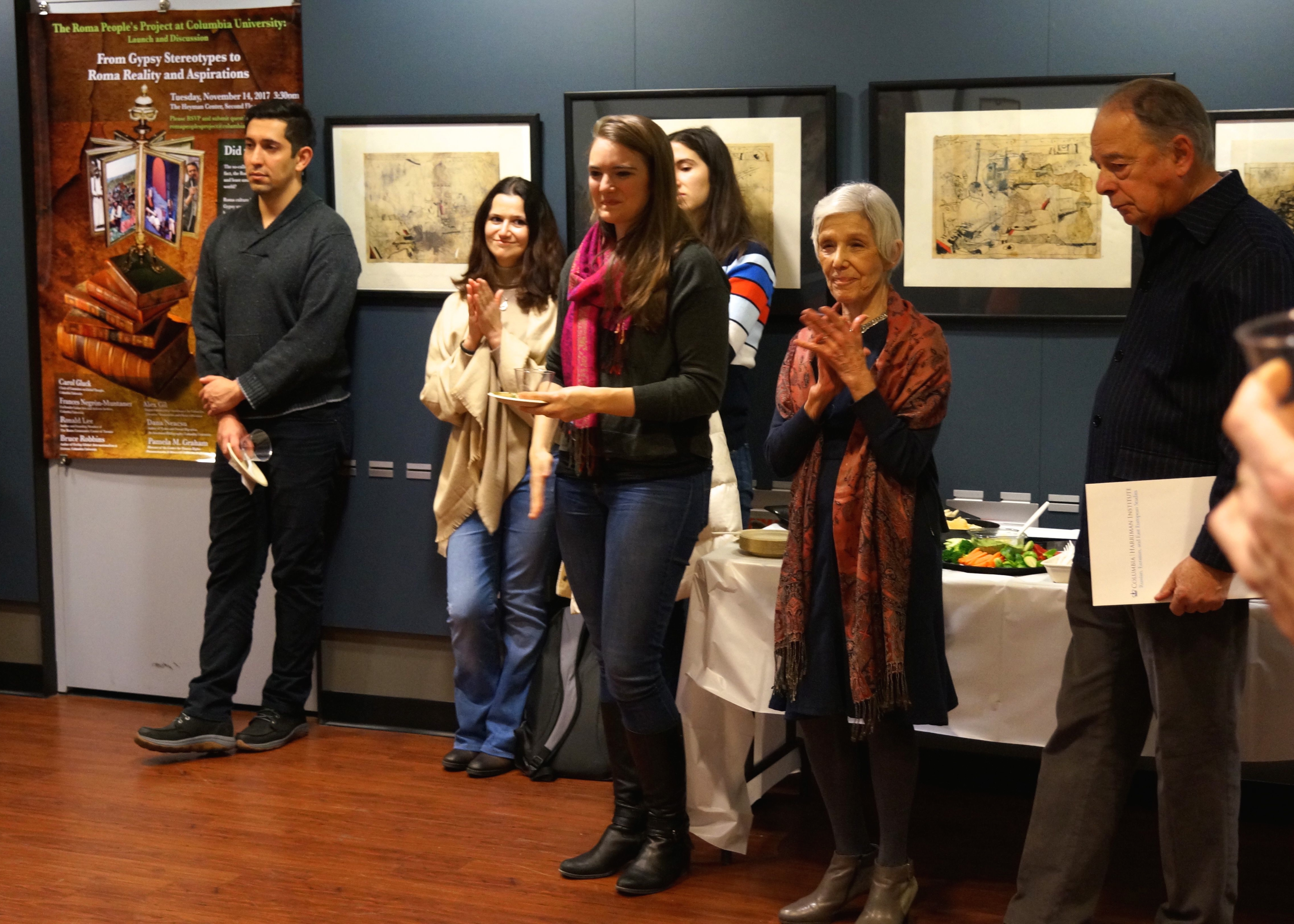
Two years ago, the Roma Peoples Project at Columbia University was an idea, grown out of the need for more nuanced and accurate representations of Roma in academia, media and cultural institutions; as well as the need for a space where Roma and non-Roma scholars can connect. At our launch event in November 2017, we set out our plans for initiating a dialogue about Roma in the academic context and beyond. In our first two years, we have begun to turn these aspirations into realities.
On November 13th, 2019, at Columbia University’s Harriman Institute for Russian, Eurasian and East European Studies, we were honored to bring together at our close community of collaborators, supporters, partners and friends for an evening of celebration and sharing our aspirations for to the future.
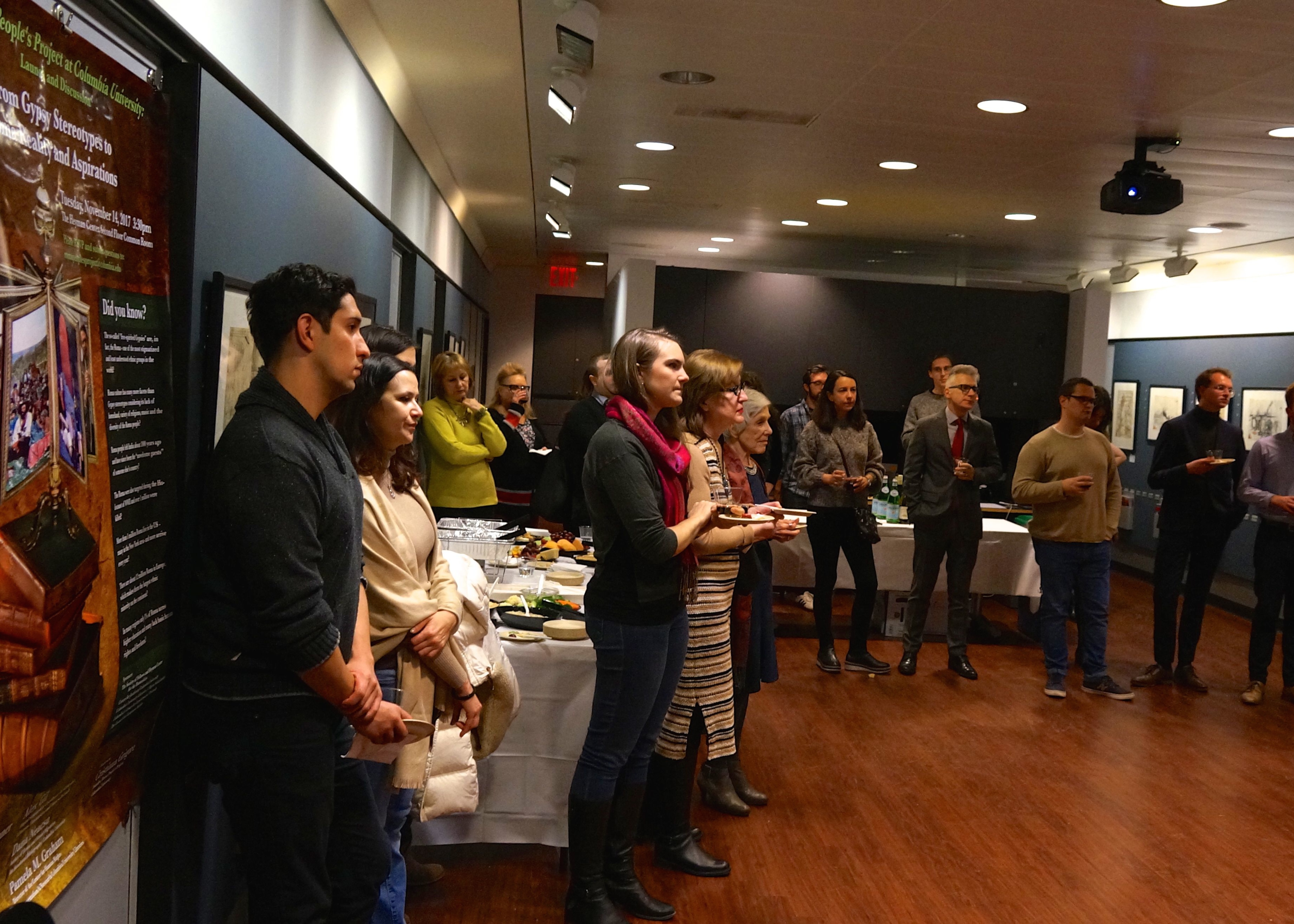
Cristiana Grigore, Founder of the Roma Peoples Project, opened the evening. She highlighted how remarkable it is to hold an event focused on Roma Studies—historically a tangential topic in academia—surrounded by Roma friends, supportive collaborators and partners. She commented as well on the need to continue and make sustainable the efforts started two years ago. Alexander Cooley, Director of the Harriman Institute, commented on the growing partnership between the Roma Peoples Project and the Harriman Institute, and the significant step that this represents for East European Studies at Columbia. Elsa Stamatopoulou, Director of the Individual People’s Rights Program at Columbia and advisor of the Roma Peoples Project, spoke about the project’s growth and main dimensions as well as the work we’ve done in increasing the visibility of the Roma people across media and academic channels.
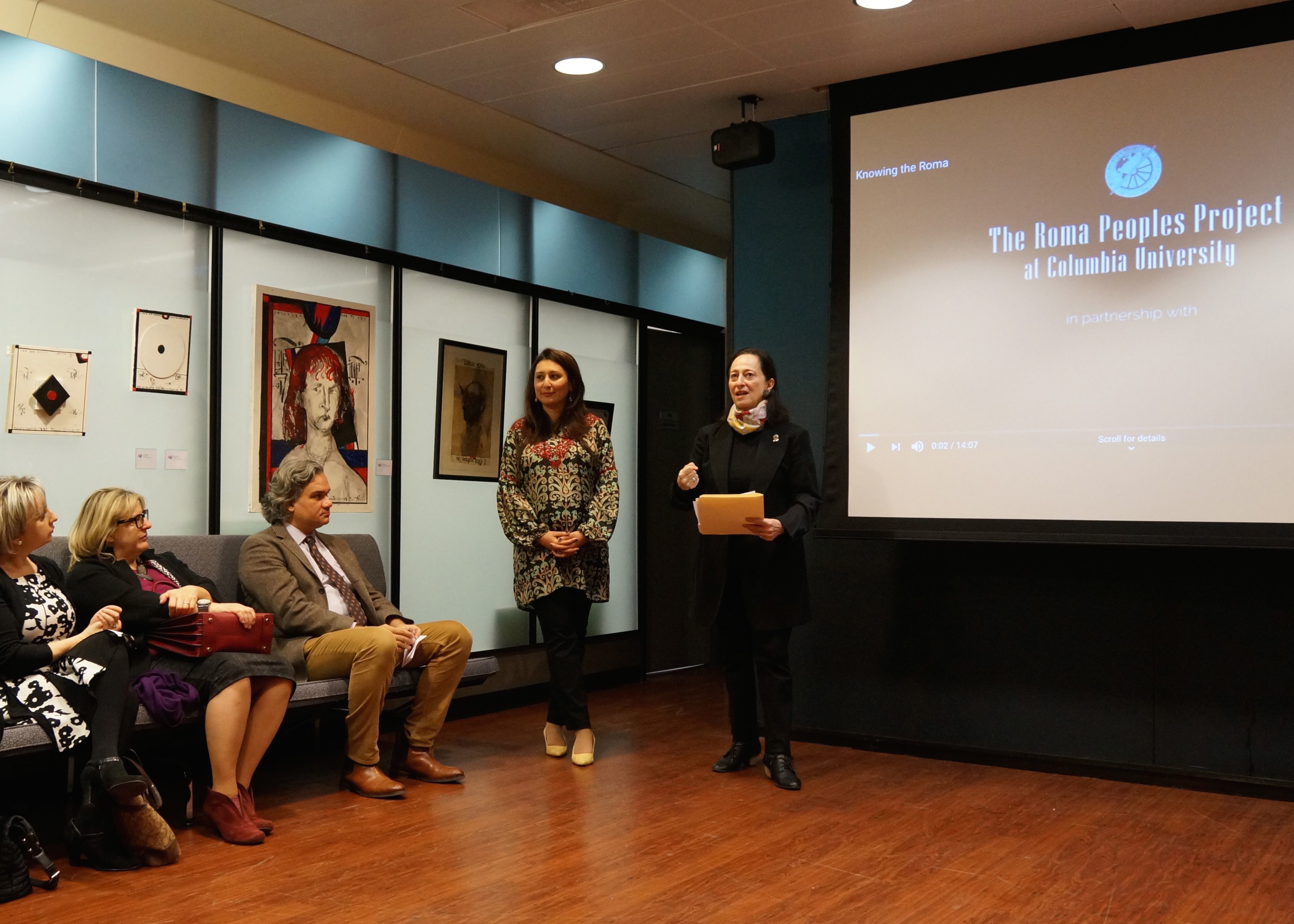
Sarah Zawacki, Core Collaborator of the Roma Peoples Project, and Cristiana Grigore presented the project’s achievements in its first two years, highlighting the initiatives we’ve implemented to spark discussions of Roma representation at Columbia University and beyond. Key activities included launching a Roma Studies seminar at Columbia, supporting Roma scholars to gather data and disseminate their work, publishing articles on Roma representation in major media outlets, and developing digital connect with Roma and friends of Roma from around the world.
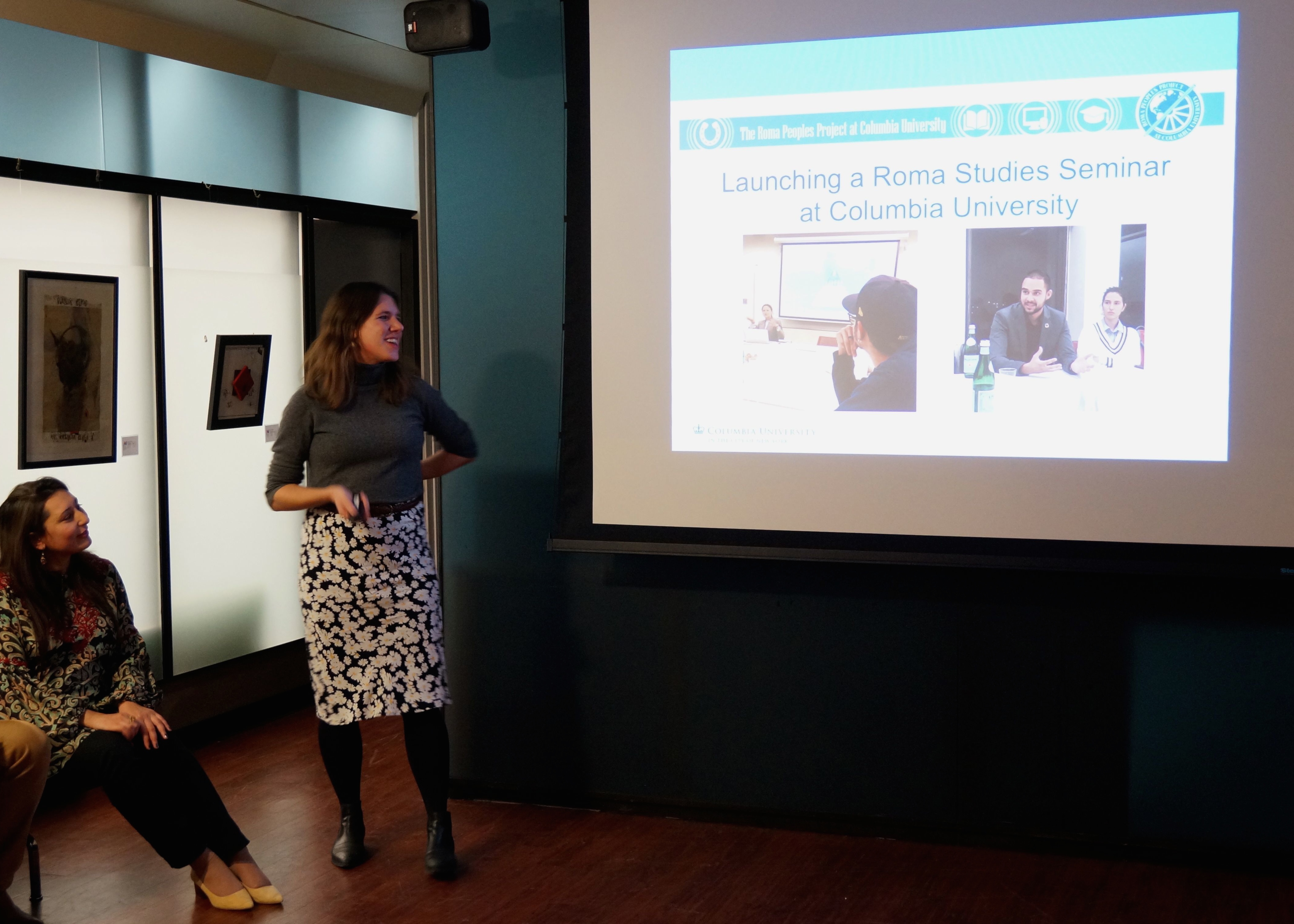
These achievements were possible through the commitment and dedication of our community of collaborators, partners and contributors. We were honored to present some of our long-term partners and collaborators with diplomas recognizing their commitment and dedication to the project. Here is the list of recipients whom we honored with an award for distinguished service:
-
Jerry Heymann, who has supported our work with an annual contribution from the start. His generosity and support has allowed us to implement our ideas, explore new ways in which we can develop and be flexible in our first two years of operation.
-
Cal Brisbin, Core Collaborator of the project from the beginning. We can always rely on Cal to provide insightful research, thoughtful impressions on long-term project development and innovative ideas for new initiatives.
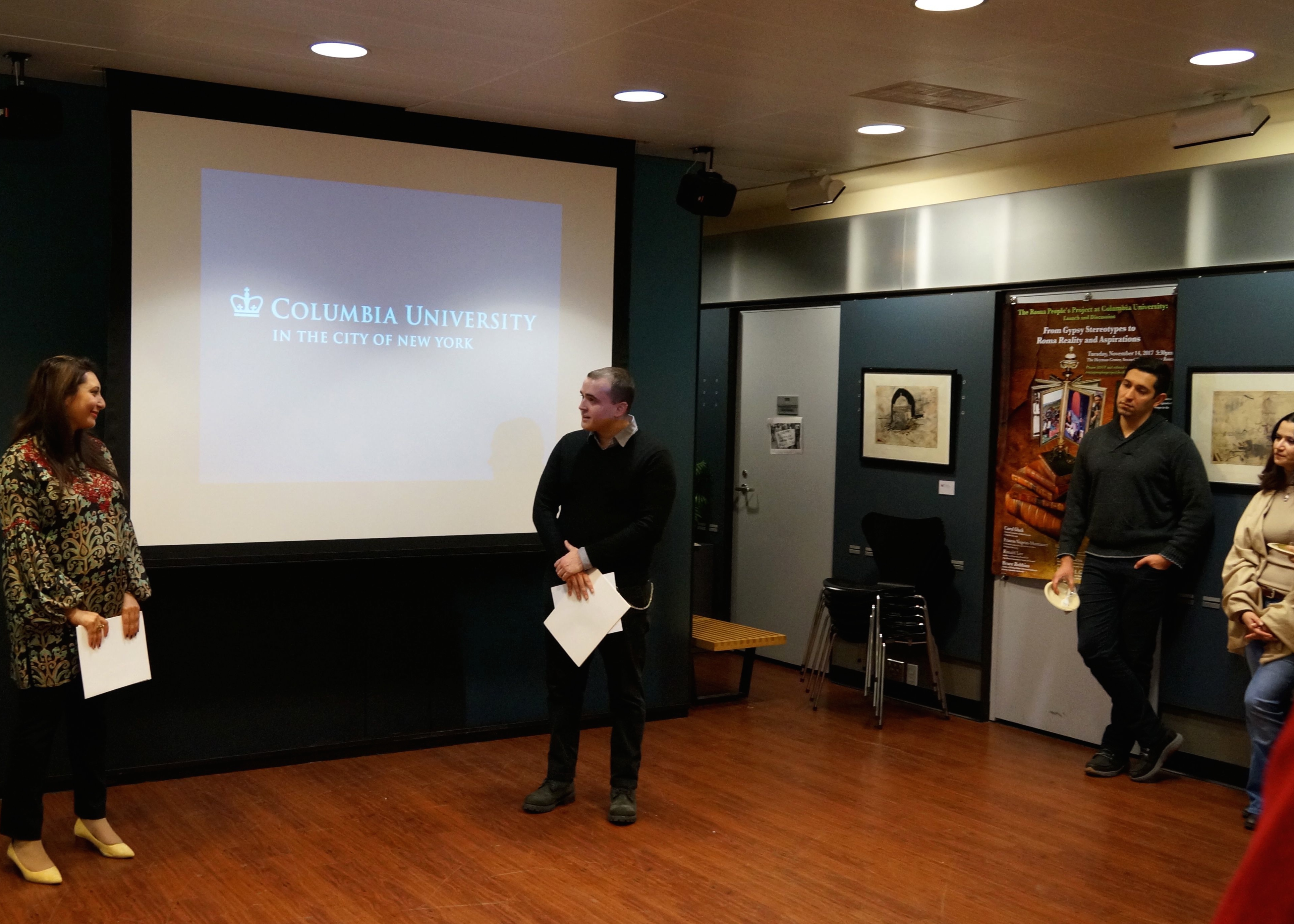
-
Ronald Lee, who has been a fundamental part of the Roma Peoples Project since its launch event in November 2017, providing valuable advice and guidance. Dr. Ronald Lee is one of the world’s most prominent Roma authors, linguists and activists. He is a founding member of the Roma Community Center, Toronto which assists Roma newcomers to Canada with their social integration and serves as a cultural center.
-
Geraldine Downey, Director of Columbia University’s Center for Justice. Professor Downey has provided the project with critical institutional support and an incubation space for our ideas, proving that where there is a will to include Roma in mainstream academia, there is a way.
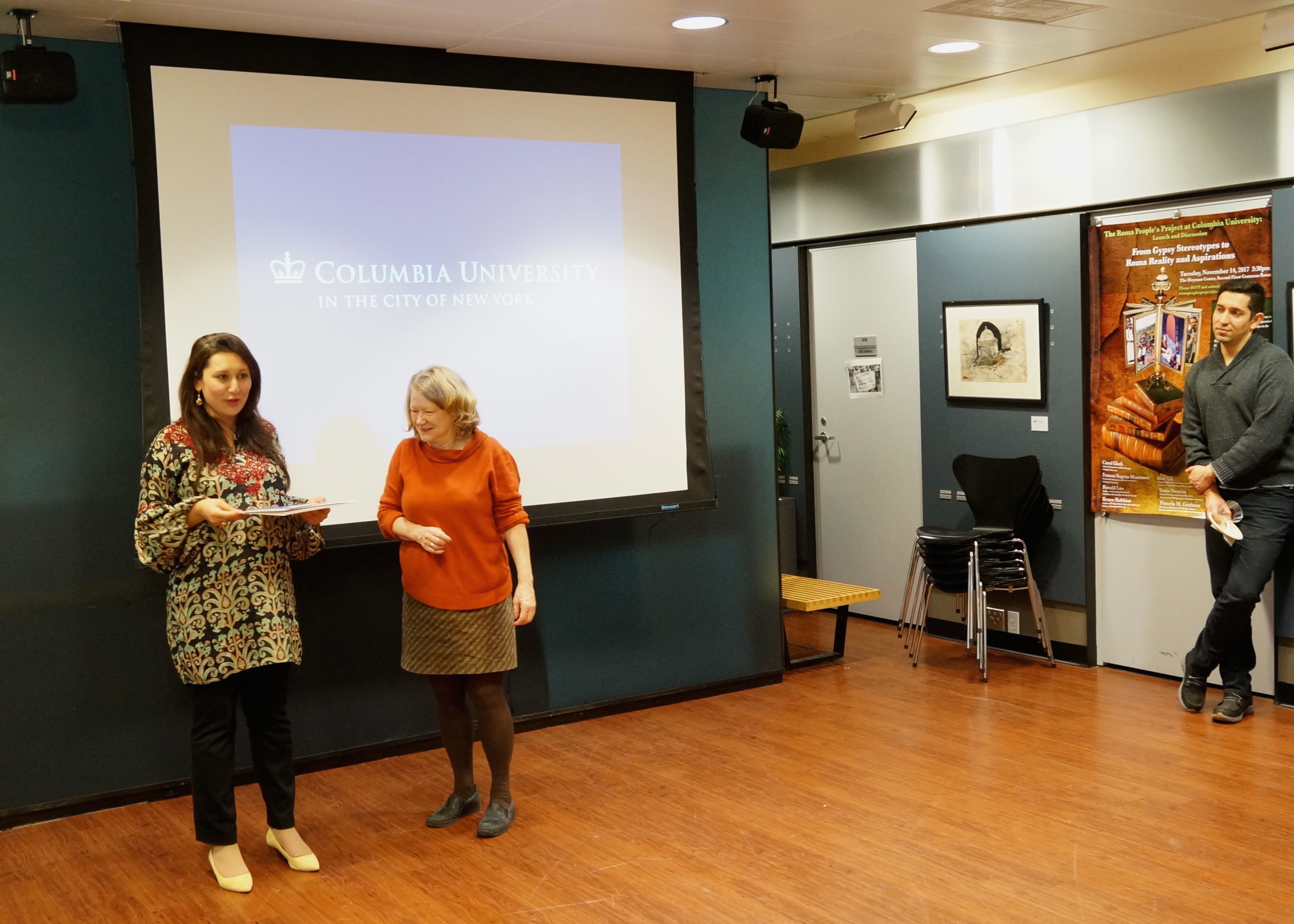
-
Stefania Magidson, Founder and President of the Blue Heron Foundation and a member of our Board of Advisors. Stefania’s foundation provides scholarships and mentorship for less privileged youth in Romania and Moldova; Stefania’s openness to our growth and critical milestones has provided vital support to the Roma Peoples Project since its inception.
-
General Delegation of the Government of Flanders in the United States, which has provided consistent and vital support to our events and initiatives. Throughout our close partnership—born out of a shared interest in Flemish-American artist Jan Yoors’ work featuring Roma people—Flanders House proved to be an example of diplomacy at its best, with their welcoming and creative approach to our collaborations.
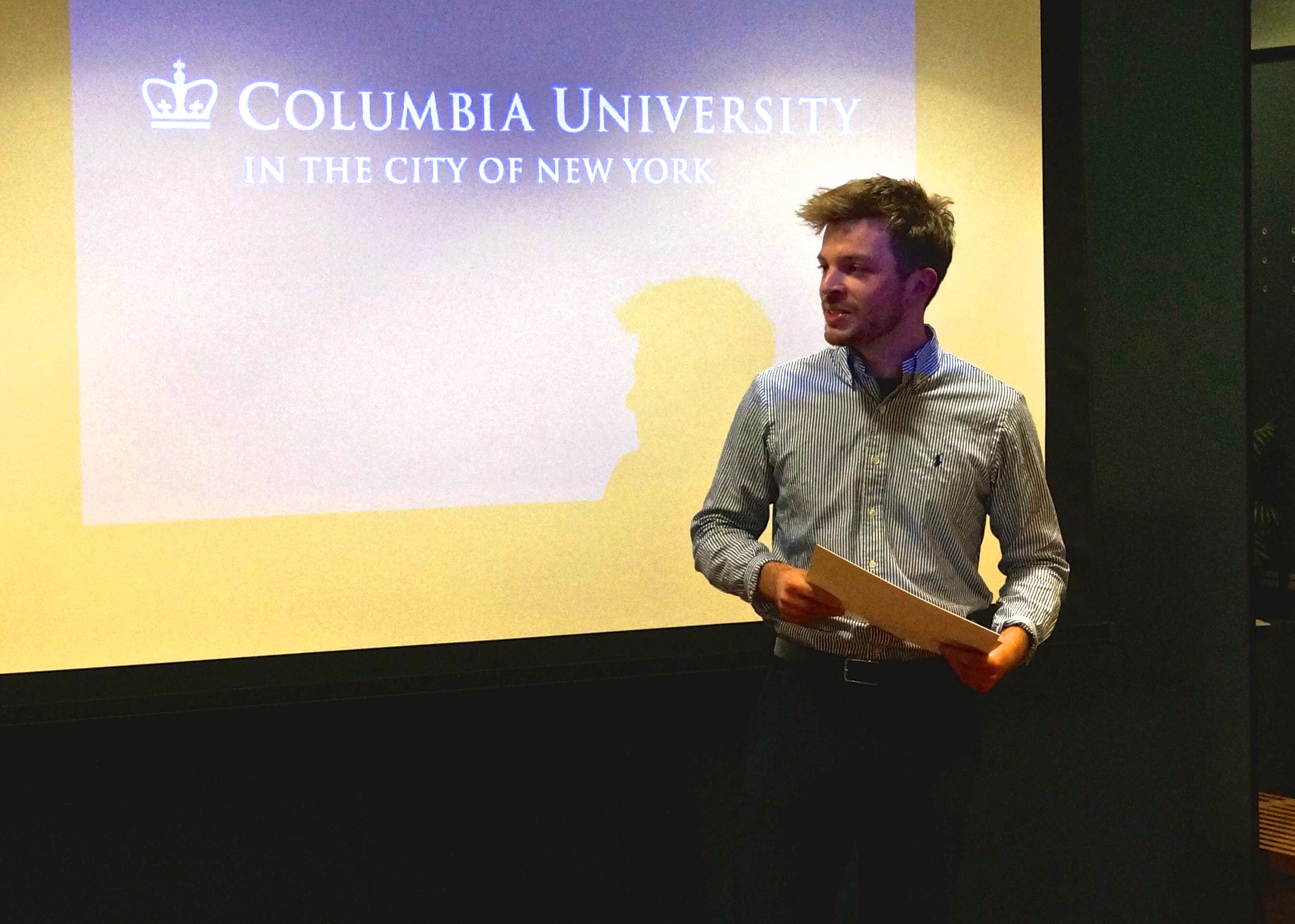
Bringing a long-overlooked topic toward the mainstream of Columbia University is not without its challenges, and we are grateful to everyone who has contributed to making the first two years of the Roma Peoples Project a success. Looking toward the future, we are planning new educational programs in Roma Studies, research initiatives connecting Roma with other similar groups and groundbreaking partnerships with arts and cultural institutions. In the past two years, we have built a global community with a dedication to advancing more sensitive representations of Roma. In the coming years, we look forward to continue building and consolidate an infrastructure where new ideas about Roma Studies can flourish.